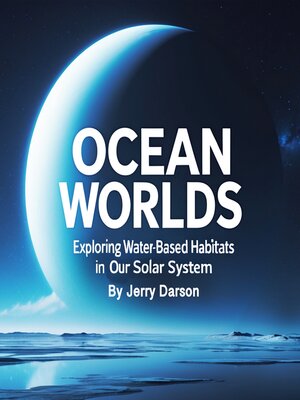Ocean Worlds
audiobook (Unabridged) ∣ Exploring Water-Based Habitats in Our Solar System
By Jerry Darson

Sign up to save your library
With an OverDrive account, you can save your favorite libraries for at-a-glance information about availability. Find out more about OverDrive accounts.
Find this title in Libby, the library reading app by OverDrive.



Search for a digital library with this title
Title found at these libraries:
| Library Name | Distance |
|---|---|
| Loading... |
This audiobook is narrated by a digital voice.
The search for water beyond Earth has become one of the most compelling pursuits in modern planetary science. Water is fundamental not only to sustaining life as we know it but also to understanding the geological and atmospheric evolution of celestial bodies. It serves as both a chemical and physical indicator, offering clues about a planet or moon's history, structure, and potential for habitability. In recent decades, scientists have shifted their attention from simply finding planets to identifying those with signs of water—particularly in its liquid form.
The notion that water might exist beyond Earth is not new. Early telescopic observations of Mars revealed polar ice caps, hinting at the presence of water. However, it wasn't until the advent of space exploration that the idea gained traction. Missions like Viking, Galileo, and more recently, Cassini and the Mars rovers, have significantly advanced our understanding. These missions have provided tangible evidence of water in various forms—ice, vapor, and even signs of liquid water beneath surface layers.
Key to this quest is the concept of the "habitable zone," the orbital region around a star where conditions may be just right for liquid water to exist. Yet, discoveries in our own solar system have shown that this zone may be more flexible than once believed. Moons such as Europa and Enceladus, though located far from the Sun, possess internal heat sources that could maintain subsurface oceans. This challenges the traditional idea that proximity to a star is necessary for liquid water to exist.







